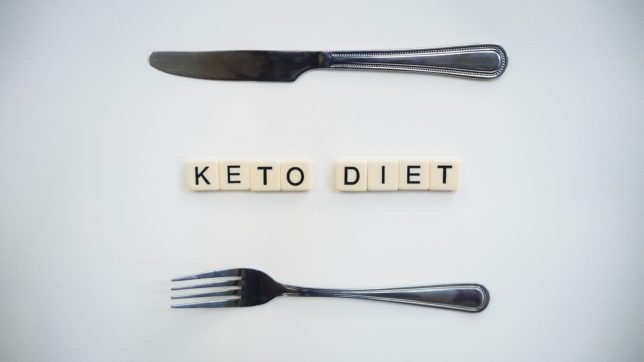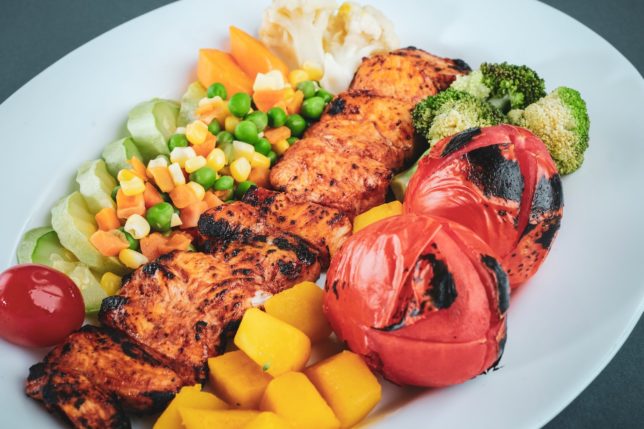The ketogenic (or “keto”) diet has taken the world by storm over the past few years. A high-fat, low-carb diet, the keto diet has been found to have numerous health benefits, including weight loss, increased energy, and improved cognitive function. However, many people find the keto diet to be difficult to stick to. With its strict rules, it can be challenging to maintain a keto lifestyle, especially in the beginning.
Fortunately, there are strategies that can make keto dieting easier. In this blog post, we will examine seven of these strategies, including meal planning, tracking your macros, and creating keto-friendly snacks. We will also discuss how to stay motivated and how to make the transition to the keto lifestyle less daunting.
By following these strategies, you can make your journey to a healthier lifestyle easier and more successful. With the right tools and knowledge, you can start seeing the benefits of the keto diet in no time. So let’s get started and learn how to make your keto lifestyle easier.
1. Meal Preparation
Planning and prepping meals in advance saves time and helps reduce the temptation to eat unhealthy foods.
Meal prepping can be a great way to save time and reduce the temptation to eat unhealthy foods. By planning your meals in advance, you can save yourself time and money.
Another benefit of meal prepping is that you can control the ingredients that are included in your meals. This can help you avoid eating processed foods or unhealthy fats and sugars.
There are a few different ways to meal prep, and the method that works best for you depends on your lifestyle and preferences. You can either cook all your meals from scratch, buy premade meals from stores or online, or use a combination of both methods.
Whatever method you choose, make sure to prepping your meals ahead of time is a priority. It will not only save you time, but it will also help you to eat healthier and more nutritious foods.
2. Stock Up On Keto-Friendly Foods
When you’re on a keto diet, it’s important to have staples like avocados, nuts, and eggs on hand so you always have something to snack on. These foods are low in carbs and will help you stay on track.
Avocados are a great source of healthy fats and are a great way to add flavor to your food without adding tons of carbs. They can be used in salads, as a dip, or as a filling for tacos or burritos.
Nuts are a great source of protein and are a great way to add healthy fats and satiety to your diet. They can be used in salads, as a topping for tacos or burritos, or as a filling for muffins or cookies.
Eggs are a great source of protein and are a great way to add healthy fats to your diet. They can be used in salads, as a dip, or as a filling for tacos or burritos.
3. Try Intermittent Fasting
If you’re looking to break your addiction to sugar and other unhealthy foods, intermittent fasting may be a good option for you. Intermittent fasting is a diet plan where you reduce your food intake between meals instead of eating continuous amounts of food all day long.
There are a few different types of intermittent fasting, but the most common is the 16/8 plan. This involves eating between 16 and 24 hours per day, with an eight-hour feeding window. This means that you can have two meals and two snacks during this time period, but no food after 8 p.m.
There are a few benefits to intermittent fasting, including reduced cravings and improved blood sugar control. It can also help you lose weight, since your body’s natural metabolism is reset during intermittent fasting.
If you’re considering intermittent fasting for weight loss, be sure to talk to your doctor first. Intermittent fasting can be dangerous if you have any preexisting medical conditions or if you’re pregnant. Additionally, intermittent fasting isn’t for everyone, so be sure to ask your doctor if it’s the right plan for you.
4. Get Plenty Of Sleep
Getting plenty of sleep is essential for staying in ketosis. Not getting enough sleep can make it harder to stay in ketosis, and can even lead to weight gain.
When you’re not getting enough sleep, your body doesn’t have time to properly burn your food for energy. This means that your body will start to store fat instead. Additionally, when you’re not getting enough sleep, your brain doesn’t have time to properly produce ketones. This can lead to a decrease in your energy levels, cravings for carbs, and difficulty in staying in ketosis.
So make sure to get at least seven hours of sleep each night to ensure that you’re staying in ketosis and enjoying all the benefits that come with it!
5. Drink Plenty of Water
Hunger and cravings can be tough to deal with, but keeping yourself hydrated can help reduce the intensity of both feelings.
Many people don’t realize that staying hydrated can help reduce hunger and cravings in two ways. First, when you’re thirsty, water helps to quench your thirst and satisfy your hunger. Second, when you’re hungry, drinking water can help to curb your appetite by supplying your body with nutrients and water.
Both of these effects are indirect, but they’re still important to consider when trying to manage hunger and cravings. If you’re feeling especially hungry or thirsty, make sure to drink plenty of water throughout the day to help reduce the intensity of those feelings.
6. Exercise
Exercise has been shown to have a variety of benefits, including increasing energy levels, reducing stress, and boosting your mood. All of these benefits are important if you want to have a healthy lifestyle.
When you exercise, your body releases endorphins, which are natural painkillers. Endorphins are also responsible for reducing stress and improving mood. In addition, exercise has been shown to improve cognitive function, reduce anxiety, and boost cognitive skills.
So whether you’re looking to boost your energy levels, reduce stress, or improve your mood, exercise is a great way to do it. Just be sure to pick a workout that is safe for your body and works with your personal fitness level.
7. Try Supplements
Making the switch to a keto diet can be a bit daunting, but there are a few supplements that can help make the process a little bit easier.
One supplement that has been shown to help with the transition to a keto lifestyle is exogenous ketones. These supplements help to increase ketone levels in the blood, which can help to alleviate some of the keto flu symptoms that are common during the early stages of the diet.
Another supplement that has been shown to be helpful is MCT oil. MCT oil is a type of oil that is derived from coconut oil, and it is a great source of medium chain triglycerides (MCTs). MCTs are a type of fat that is metabolized differently than other types of fat, and they are known to help with weight loss and improve gut health.
If you’re looking to try out a keto diet, supplements like these can be a great way to make the transition easier.
Conclusion
The ketogenic diet has become very popular in recent years because it has been found to improve health and lose weight. However, this diet can be challenging to follow. To help you transition to a healthier lifestyle, we have put together 7 tips to help you through the transition. We hope this article helps you on your way to a healthier, happier you.
On the hand, if you want to stick to a Keto diet without figuring all this TRY CUSTOM KETO DIET, which offers a plan specifically tailored for you.




